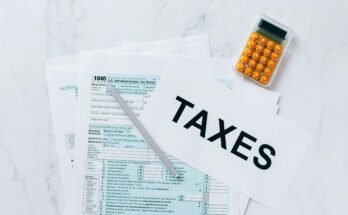Earning a Doctor of Business Administration (DBA) degree can help advance your career and open up exciting new opportunities. However, DBAs are expensive, and many people consider scholarships and educational funding options to make the degree more affordable.
What is a DBA?
Before diving into specific scholarships, it’s helpful to explain what a DBA is for those who may be unfamiliar. A DBA (Doctor of Business Administration) is a professional doctoral degree that focuses on developing practical business research skills and knowledge. DBA programs are typically geared towards working professionals who want to stay in their careers while also advancing their educational credentials.
The overall goal of a DBA is to train experts who can contribute valuable research to their fields of work. DBA students conduct original research on a business-related topic of their choosing, and the culminating dissertation defense demonstrates their expertise. Popular DBA specializations include fields like Finance, Marketing, Operations Management, Organizational Leadership, and more.
Completing a DBA takes 3-4 years of full-time study while also working. Courses cover quantitative and qualitative research methods, data analysis techniques, literature reviews, and other skills needed for business research. The degree compares to a PhD but with a stronger applied, professional emphasis versus basic research. Having a DBA can help those seeking promotions to C-level or other senior executive roles.
Academic Requirements
To qualify for DBA scholarships, you’ll need to meet certain academic standards:
- Undergraduate Degree: Most DBA programs require applicants to have completed a Bachelor’s degree in business, management or a related field from an accredited university with a minimum GPA of 3.0.
- Professional Experience: Many scholarships prefer applicants who have 2-5 years of professional work experience in business. This demonstrates your commitment and ability to apply your degree.
- GRE/GMAT Scores: Strong standardized test scores on the GRE or GMAT will boost your chances. Aim for scores in the 70th percentile or higher.
- Letters of Recommendation: Securing glowing recommendations from former professors or employers shows your potential. Ask recommenders to specifically address how you’ll benefit from a DBA.
- Statement of Purpose: Clearly articulate your career goals and research interests in your personal statement. Explain why a DBA rather than a PhD is the right fit.
Meeting these baseline standards is necessary but no guarantee of scholarship funding alone. You’ll need a strong full application package to compete. Start preparing early in the application cycle.
Major Sources of DBA Scholarship Funding
With the cost of a DBA ranging from $ 80,000 to $150,000 on average, funding assistance can make or break your ability to enroll. Here are some of the top places to search for scholarships specifically for DBA students:
Graduate Programs Themselves
Many DBA programs offer internal scholarships, grants, and fellowships directly through their individual business schools. Their funding may be more competitive, with fewer overall awards available compared to external options. Examples include:
- Cornell University DBA Scholarships: Annual merit-based scholarships up to $30,000 for full-time study renewable through graduation.
- Georgia State DBA Excellence Award: Awards of $10,000 per year to support high-achieving applicants interested in supply chain research areas.
- Univ. of Manitoba DBA Entrance Scholarships: Awards of $6,000 Canadian dollars renewable for three years of study.
Check each targeted DBA program’s website and apply using their internal deadlines, which are usually in late fall/winter for the following fall start. Consider including a scholarship supplement with your application.
Private Scholarship Organizations
Many independent foundations provide business graduate scholarships through competitive applications. Search widely and tailor your materials. Notable examples include:
- Ewing Marion Kauffman Foundation: Awards $16,000 annually to encourage innovative entrepreneurship research for specific business schools.
- Delta Sigma Pi Scholarships: $2,000-$10,000 awarded to graduate students entering business-focused degrees from this business fraternity’s endowment.
- Golden Key International Honour Society: Offers $2,500-$5,000 scholarships for members in good standing pursuing graduate studies.
- Phi Kappa Phi Fellowship: $8,500 award for members of this collegiate honor society accepted to ranked graduate programs.
Deadlines for private scholarships are usually between late fall and early spring. Watch for opportunities and plan to apply far in advance before the listed due dates.
Employer Reimbursement Programs
Some employers offer tuition assistance to encourage employees’ continued professional development and retention. Learn your company’s policies for funding advanced business degrees. Requirements often include:
- Minimum service commitment post-graduation (1-3 years typically)
- Maintaining good performance reviews and “B” average in courses
- Reimbursement upon successful degree completion vs. direct payment
Inquire about application steps well before enrolling to secure internal employer funding. Begin networking internally now to gain future commitment.
Sample DBA Scholarship Application Materials
Now, let’s review example components of a strong DBA scholarship application package to increase your competitiveness:
Personal Statement
A polished 2-3 page personal statement serves as your main writing sample. Outline your:
- Career path and relevant work experience leading up to your DBA goals
- Specific research interests aligning with a chosen business school/faculty expertise
- Plans for applying your DBA learning through your anticipated career path post-graduation
- Any overcoming circumstances, leadership roles, or achievements setting you apart
Resume/CV
Highlight your education, certifications or licenses, work experience, publications, presentations, honors and awards in a 1-2 page formatted resume. Tailor it to DBA programs and anticipated research expertise.
Letters of Recommendation
Ask professors and employers who can personally attest to your leadership, work ethic, research potential, and fit for doctoral study. Provide recommenders with your resume, personal statement, and a target list of programs/deadlines.
GRE/GMAT Scores
Official score reports from exams taken no more than 5 years prior further validate your candidacy versus minimum requirements. Request official reports be sent directly to all programs.
Research Proposal
Crafting a three-page proposal on a substantive topic shows scholarship reviewers your abilities and interests. Cite the literature reviewed and research questions/methods to be explored.
With thoughtful content and design, these application elements can strengthen your package profile and funding chances when brought together cohesively. Obtain feedback before applications are due.
DBA Scholarship Application Timeline
Since many financial aid sources for DBA programs follow similar schedules, developing an overall timeline is prudent. Here are some key due dates to target:
- October – December: Identify programs/specializations for investigation, and request recommendation letters early.
- December – January: Register for January/February administrations of GRE/GMAT tests if needed.
- January – February: Set up interviews with programs and faculty to assess research fit, and visit prospective universities if possible.
- March 1-15: Deadline for many internal university/school DBA scholarships. Time to have materials thoroughly proofread.
- March 15-31: Apply for outside fellowship programs or private scholarships with spring deadlines.
- April-May: Receive response notifications from programs/universities as admissions decisions are made.
- June 1: First possible target date for committing to an admissions offer by submitting enrollment confirmation and deposit.
It’s never too early to gain information or arrange campus visits as the application process is highly competitive. Leaving time for strong editing of your materials is also vital to your funding candidacy.
FAQs About DBA Scholarships
Here are some common questions people have about DBA scholarships:
Q: Do I need to be enrolled full-time to qualify for scholarships?
Some scholarships require full-time enrollment, but part-time students are eligible for others depending on the specific award terms. Check each program’s criteria.
Q: What if I don’t have a strong GPA from my undergraduate studies?
Relevant, high-quality work experience or accomplishments can offset an average GPA. Focus your statement and resume on career progression and make a strong case for research potential based on your unique strengths.
What are my chances of getting a scholarship as an international student?
Many awards are limited to domestic/resident students due to funding source restrictions. However, inquire specifically about provisions for international scholars based on your location and programs of interest.
Q: If I receive a scholarship, what are the renewal requirements?
Expect to maintain a high minimum GPA each term/year (usually 3.3-3.5 range), make progress towards degree completion at required timeframes, and remain in good academic standing. Check specific performance benchmarks with each award.
Q: How important are my standardized test scores?
While test scores provide validation of minimum qualifications, strong application materials like experience, recommendations, and personal statements carry more weight in the overall selection process.



